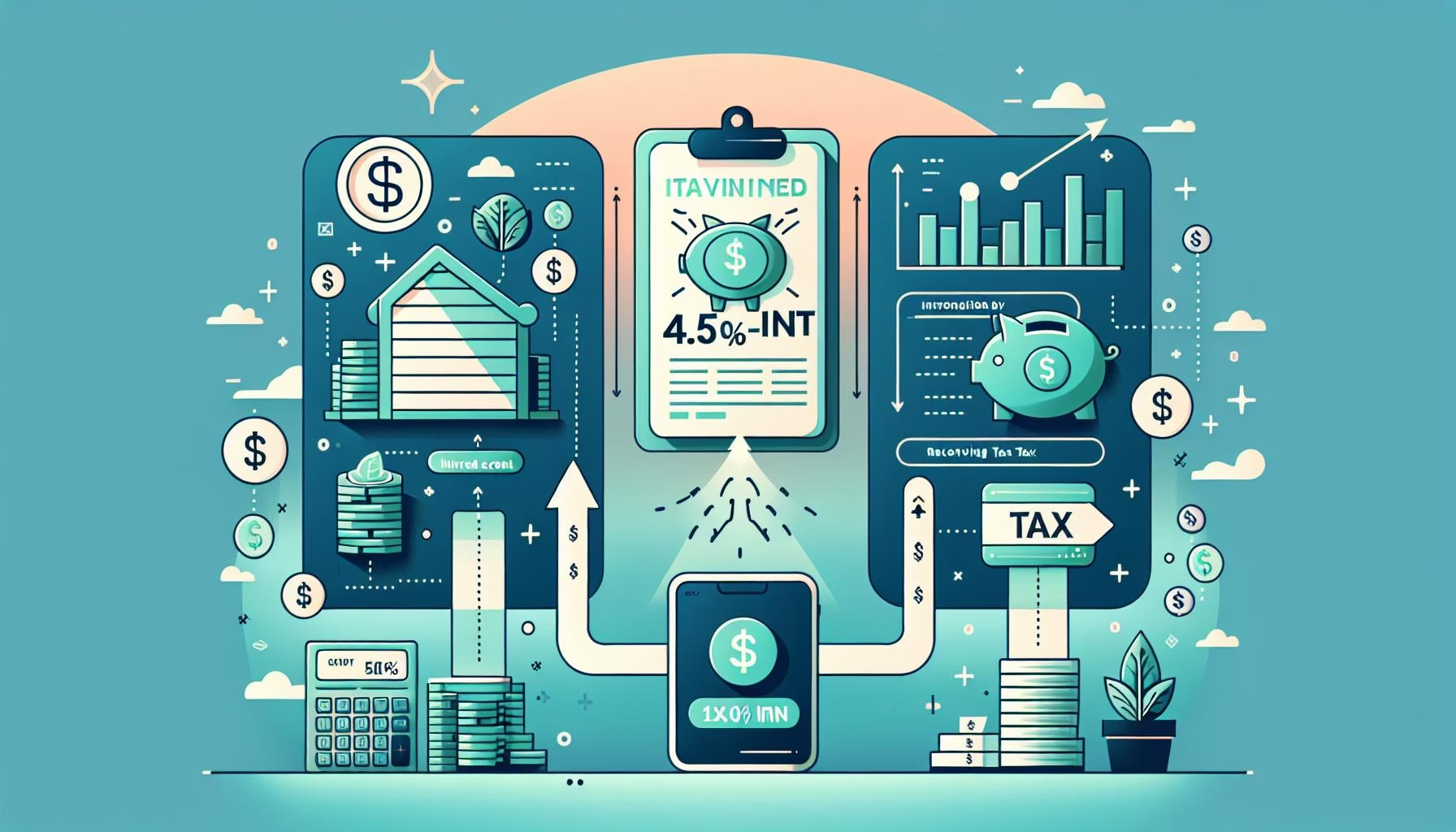High-yield interest accounts are popular for good reason—who doesn’t want to earn more money on their savings? But before you park your cash into a high-yield savings account or a certificate of deposit (CD), it’s important to understand the whole picture. These accounts might be great for growing your savings, but they can also come with unwanted tax consequences.
In this post, we’ll break down how high-yield interest could affect your taxes in ways you might not expect. If your account has been earning a lot more lately—thanks to rising interest rates—it might be time to reassess how that impacts your tax bill. Let’s take a closer look at how saving more could mean paying more.
1. Interest Earnings Are Considered Taxable Income
Here’s the key point: any interest you earn from a high-yield account is treated as regular income. That means you’ll need to report it when filing your taxes. Even if you don’t touch the money and let it sit in your account, Uncle Sam still wants a piece of the pie.
For example, if your high-yield savings account paid you $1,000 in interest over the year, you’ll be taxed on that just like you would with your salary or side hustle income. Sounds simple, but it can catch people off guard—especially those used to low interest rates in the past.
2. Increased Income Can Push You Into a Higher Tax Bracket
Depending on how much interest you earn, it could push you into a higher tax bracket. And that means paying more on all your income, not just the interest.
Let’s say you’re close to the edge of your current bracket, and then you earn $2,000 in interest. You could end up crossing into the next tax tier where a bigger chunk of your income is taxed at a higher rate.
While it might not seem like a huge jump, over time or with multiple sources of interest income (CDs, bonds, high-yield accounts), it can make a noticeable difference in your total tax bill.
3. Compound Interest Means More Taxes Over Time
High-yield accounts are great for compounding your earnings, but that also means compounding your taxable income. Each year, the interest adds up, and each year, you owe more tax on that growing pile of money.
This can be something of a double-edged sword. Yes, your balance is growing—but so is your yearly tax burden. And remember, the higher the interest rate, the faster you get to those larger income totals.
4. Your Social Security Benefits Could Be Taxed
This one surprises a lot of retirees. If you’re receiving Social Security and also earning a strong amount of interest from savings, it could cause part of your Social Security to become taxable.
The IRS calculates something called your “combined income,” which includes your adjusted gross income, nontaxable interest, and half of your Social Security benefits. If your interest income pushes that combined income over a certain limit, you could be taxed on up to 85% of your Social Security.
So, while you’re enjoying high interest returns, it might come with an unexpected cost during retirement.
5. You Might Owe State Taxes, Too
People often forget that you may owe state income taxes on your interest earnings. While some states don’t tax interest, many do. If you’re earning a lot, this could take another bite out of your income—even if you’ve already paid federal taxes on it.
It’s a good idea to check your state’s specific tax laws. And if you moved recently, make sure you understand both your old and new state’s rules.
6. Estimated Taxes May Be Required
If you’re earning a good amount of non-wage income (like interest), and not enough taxes are being withheld automatically, the IRS expects you to make quarterly estimated tax payments.
This applies especially to freelancers, retirees, and anyone without taxes automatically withheld from a paycheck. If you don’t send in these payments on time—and you owe over a certain threshold—you could be hit with penalties and interest.
So if you have multiple high-yield accounts funneling in steady earnings, you’ll need to stay ahead of your tax obligations before April rolls around.
7. You’re Likely to Receive a 1099-INT Form
When you earn over $10 in bank interest in a year, your bank must send you a Form 1099-INT. You’ll also get one if you have money in a CD or a money market account earning above that minimum. This form shows the IRS how much interest you earned, so make sure to include it in your tax return.
If you forget or intentionally skip reporting it, the IRS will know. That could mean extra taxes owed, penalties, or even audits. Always keep track of your 1099 forms from each financial institution and double-check your tax return.
How to Minimize Your Tax Burden From High-Yield Interest
Don’t let all of this discourage you from earning more interest. There are steps you can take to ease the tax burden:
- Use tax-advantaged accounts like Roth IRAs or 401(k)s where your interest may grow tax-free or tax-deferred.
- Consider municipal bonds, which often generate tax-free interest (federal and sometimes state).
- Spread your savings strategy across different accounts to avoid a high concentration of taxable income.
- Work with a tax advisor who can help you create a smart, tax-efficient savings and investment plan.
Final Thoughts
High-yield accounts are a fantastic way to boost your savings, especially during times of rising interest rates. But it’s important to consider how this extra interest income can affect your taxes. The more you earn, the more you may owe in federal, state, and even Social Security-related taxes.
Like most things in finance, balance is key. By taking some smart steps and consulting a professional if needed, you can enjoy the benefits of saving without feeling the sting at tax time.
For more detailed information, check out the original article on Investopedia.
Looking to learn more about smart money management? Visit our Personal Finance Tips page for guides and insights.

